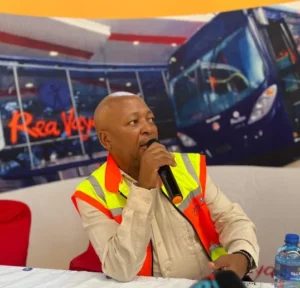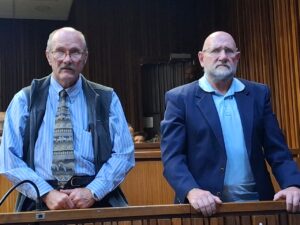By: ANG Reporter
Thousands of South Africans took to social media on Wednesday to call for a National Shutdown.
The calls followed the government’s announcement on Tuesday that the fuel price hikes will be implemented from Wednesday.
Ordinary South Africans took to social media to share their frustrations.
Many believe President Cyril Ramaphosa can do more to ensure that overstretched consumers are assisted.
Within a few hours on Wednesday morning, the hashtag #NationalShutdown already had over 8221 tweets trending number one in South Africa.
Hashtag #FuelPrice occupied spot number three with over 5000 organic tweets. Followed by hashtag #PetrolDieselPrice as a separate but related consumer-driven trend.
I’m not an activist
I’m not an influencer
I’m a South African citizen who can’t live like this anymore
10 June 2022 #NationalShutdown— Nthwe Sharp 🤟🏻 (@TshepiOlivia) June 1, 2022
Fuel Price increase
Taxi fee increase
Food transportation increase
Food price increase
Salary dololo increase
Value of your salary decrease #NationalShutdown— Man’s NOT Barry Roux (@AdvoBarryRoux) June 1, 2022
A country with almost 70% Youth unemployment is a failed State period. High immigration. High crime. High inequalities.Collapsed health system. High inflation. Fuel Crisis. Eskom Crisis. SOEs Crisis. We are a Failed State Period. #NationalShutdown. #CallEarlyElectionsNow.#RiseUp
— Combat SA (@Combat__SA) June 1, 2022
Honestly Ramaphosa is the worst…….Maybe his children are the ones gaining because it’s honestly tough living in SA😭😭😭😭#NationalShutdown
— Karabo😍 (@naledi_his) June 1, 2022
Making matters worse
South Africans were outraged by Minister of Minerals Resources and Energy Gwede Mantashe’s department on Wednesday for telling motorists to only “use the air conditioner when necessary” to save on fuel consumption.
The Minister’s department shared on Twitter several tips on how motorists can save on fuel consumption.
Many questioned whether the Minister was serious about offering such an advice at the beginning of the coldest season of winter.
Trying so hard to condone fuel price hikes by these? Haak! Reduce the unnecessary taxes on the structuring of fuel price. pic.twitter.com/E6H5BnAZhz
— Sir Bruno (@SirBruno12) June 1, 2022
Unbelievable! 🤯Inflation and consequences of money printing are being normalised? Using a modern car aircon will not save us here!
— 𝕊𝕚𝕣. 𝔹𝕚𝕥𝕔𝕠𝕚𝕟𝕋𝕤𝕠𝕟𝕘𝕒 💯🩸 (@BitcoinPuppet) June 1, 2022
These are your tips on how to build your reimagined new economy???!
— WordItOut_E (@MphoEcounsellor) May 30, 2022
Social media users urged the Minister to focus his energy on bringing the costs of petrol down.
The department went all out to urge motorists to prioritise saving on fuel consumption.
The hashtag #FuelSavingTips got many talking.
The moderate use of an air conditioner saves fuel. #FuelSavingTips. pic.twitter.com/RScY7iDUsk
— Department of Mineral Resources and Energy (@DMRE_ZA) May 30, 2022
South Africans will now pay extra for fuel from Wednesday.
From June 1, a litre of 95 Unleaded will now cost R23.42 at the coast and R24.17 in the inland regions. An increase of R2.33.
A 93 Unleaded will now cost R23.94, an increase of R2.43 per litre.
The wholesale price of 50ppm diesel will rise to R22.63 at the coast and R23.22 inland.
Diesel prices will go up by R1.07 (50ppm), and R1.10 for 500ppm
Illuminating paraffin, used by millions of poor households is going up by R1.56 per litre.
Despite the last minute’s announcement on Wednesday that the temporary suspension of the fuel levy will continue for two months, consumers will still face huge fuel price hikes from Wednesday.
Announcements were made by the Department of Mineral Resources headed by Gwede Mantashe.
Mantashe is also the former National Chairman of the South African Communist Party (SACP), and former National Union of Mineworkers (NUM) General Secretary.
South Africa is already experiencing a massive unemployment rate, and prices of basic food are already higher.
Two weeks back, the South African Reserve Bank (SARB) increased the repo rate by a massive 50 basis points to 4.75%.
Although the increase was the fourth time in a row, it was the highest margin in six years.







